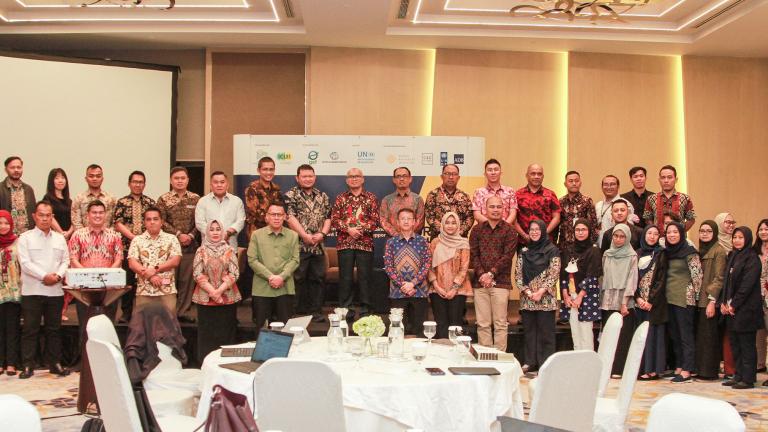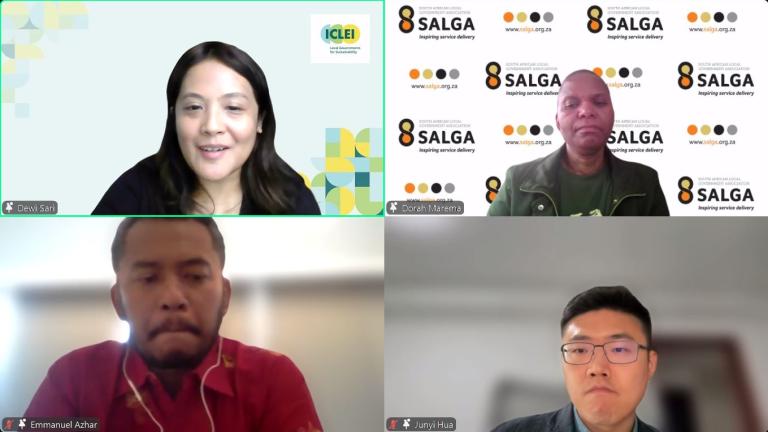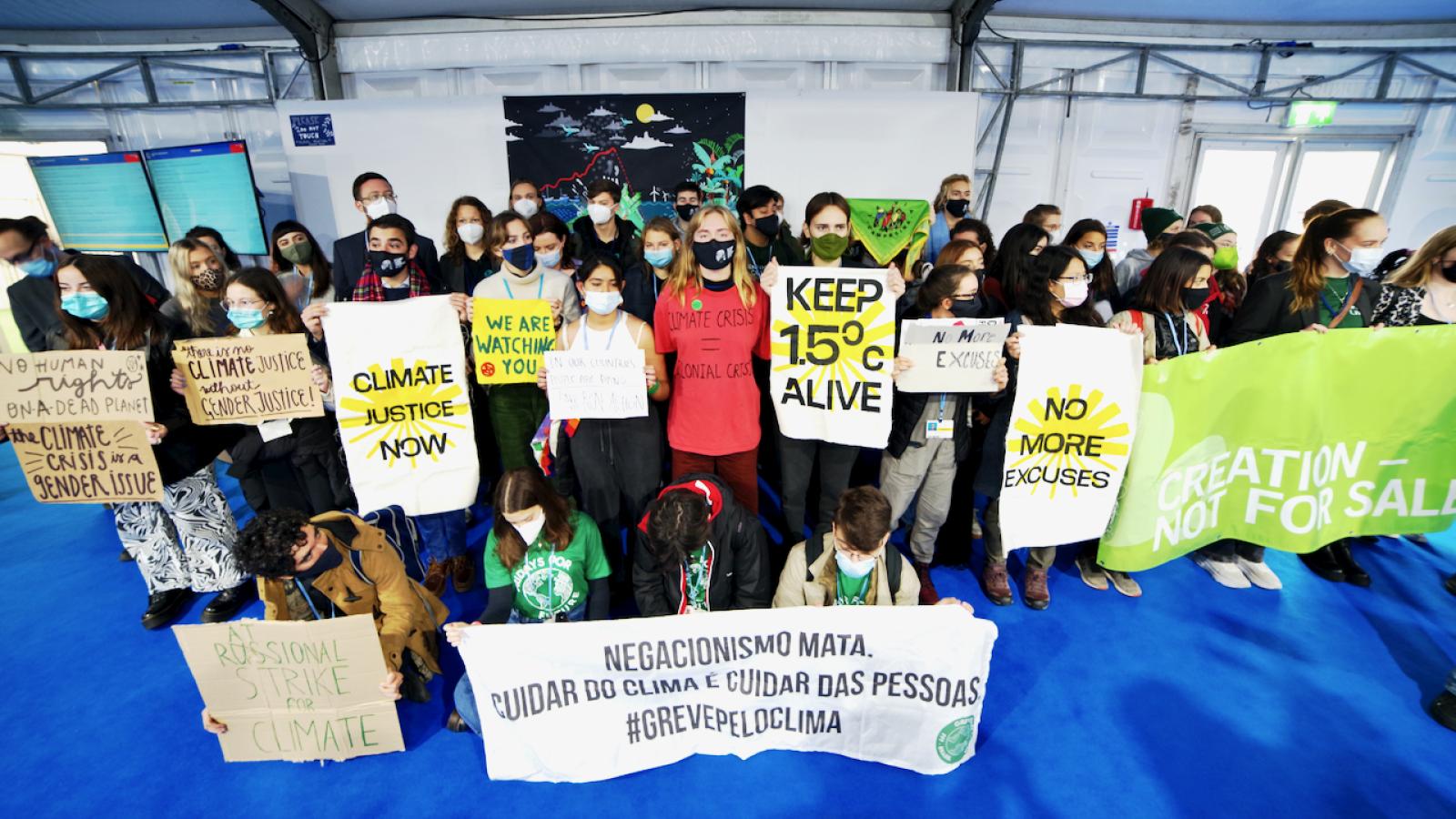Recap
Reflections from International Youth Day
UrbanShift's Youth Day webinar highlighted inspiring youth and city led sustainability initiatives from China, India, Indonesia and Sierra Leone, with speakers reiterating the importance of meaningfully engaging young people in climate action.
The impacts of climate change have intensified over time, and one thing has become certain: we will leave Earth to today’s children in a dire state. In other words, the youth of today will have to deal with the legacies of past and current leadership.
There are currently more than 1.3 billion people aged between 15 and 24, of which almost 85% live in developing countries. Cities in these countries account for over 90% of the growth in the global population, 60% of which is projected to be less than 18 years of age by 2030. This generation must be meaningfully engaged in critical decisions concerning their future and given an active role in addressing the climate emergency at the local, national and global levels.
The UrbanShift webinar on August 12 celebrated International Youth Day 2022, with discussions on engaging youth and leveraging the vital role they play in the climate emergency. Panelists from China, Indonesia, India and Sierra Leone shared their views on the state of youth engagement and lessons learned in their respective contexts.
The panelists agreed that young people can make a difference and should be empowered to participate in decision-making. They also highlighted that education on climate science and environmental policy is crucial to ensure youth engagement with suitable policy instruments.
Yuwei Shao from China Youth Climate Action Network (CYCAN), the first Chinese climate change youth organization, talked about the three levels of participation available for young people within the network, which includes about 100,000 members from 500 universities. First, CYCAN offers capacity building activities to young people who want to improve their knowledge on specific topics; second, it provides tools and guidance to youth who would like to engage but don’t know where to start; and third, it engages volunteers who are ready to be involved in relevant climate projects.
Eric Mohamad Atthauriq from Bandung City, Indonesia highlighted the participation of local youth in tackling climate change and urban development issues. Bandung conducted a survey to determine what young people considered to be the city's most pressing challenges. Waste disposal, road safety and traffic jams emerged as priorities and, in accordance, the city launched programs to improve waste management and air quality and put in place strategies to reduce traffic.
Bandung aims to create safer urban environments for young people through facilitating them to develop creative spaces and parks. This has led to initiatives like youth-led greening programs along the river banks of Cipamokolan and Sungai Cikapundung Kolot. Bandung has also became a model city for urban farming.
Another example of youth empowerment was shared by Mustapha Kemokai from Freetown City Council in Sierra Leone. The city launched the "Sustainable Waste Micro Enterprise" project to create livelihoods for youth in informal settlements and address improper solid waste disposal. Youth became climate change ambassadors within the community and took the lead to enhance and manage public spaces. As a result, solid waste management was vastly improved, illegal dump sites were closed, and community-based working groups were created.
Hemali Boghawala, the Mayor of Surat Municipal Corporation (SMC), India, emphasized the importance of educating young people and creating partnerships to increase youth engagement. Surat has introduced a course on climate change for secondary school students and is training teachers to mainstream climate change education in curriculums. University and college students are encouraged to engage on climate change topics through festivals and competitions. Surat also encourages local NGOs to partner with youth on spreading awareness about the importance of waste segregation and the hazards of illegal dumping and burning of waste.
The webinar concluded with an announcement by Elisa Calcaterra from UNDP's Rome Center for Sustainable Development about an exciting opportunity for youth that will be officially announced during Climate Week NYC. The Youth4Climate initiative, co-led by the Italian Ministry of Ecological Transition (IMET) and UNDP, will launch a call for innovative ideas from young people on how to tackle climate change. Ideas on strengthening urban resilience will receive grants for further development and dissemination. Individual and community-based organizations led by young people are encouraged to apply.
Watch a recording of the webinar in English, Indonesian Bahasa, Mandarin or Gujarati here.
READ MORE

How Africa’s First Chief Heat Officer is Helping to Create a More Resilient Freetown
As extreme heat rises across the globe, Eugenia Kargbo is showing how cities can prioritize strategies to mitigate risks and support residents' wellbeing.

Cities: Indonesia’s Biggest Climate Problem – and Its Best Solution
This event brought together government agencies, local city representatives, and international development organizations to discuss how Indonesia can meet its ambitious NDCs and align with its 2030 SDGs.

Enhancing Urban Infrastructure Resilience through Nature-Based Solutions in South Asian Cities
This webinar explores how nature can transform South Asian cities into resilient, sustainable, and thriving urban spaces.

Building Equitable Futures: Implementing a Just Transition in Urban Environments
In this webinar, urban climate leaders from Indonesia, South Africa, and China shared their countries’ latest efforts in implementing just transitions in urban settings.

